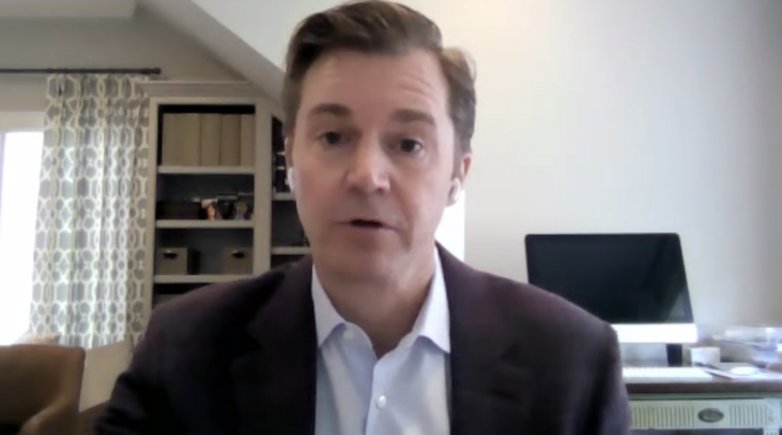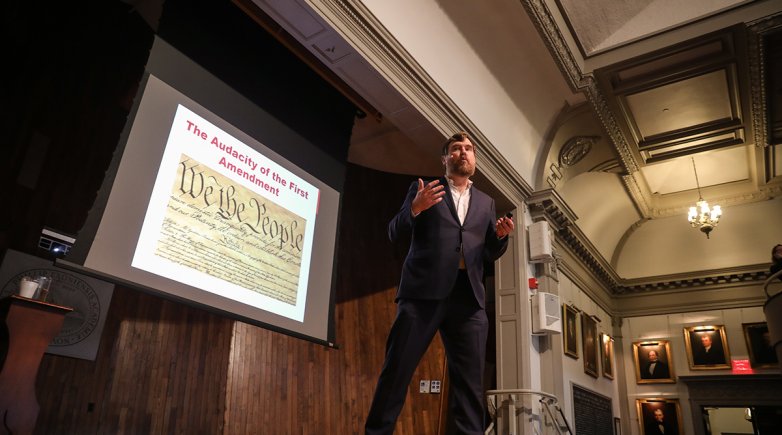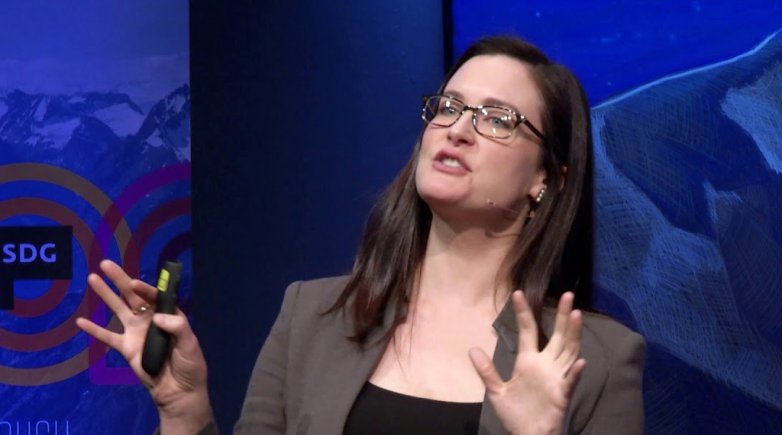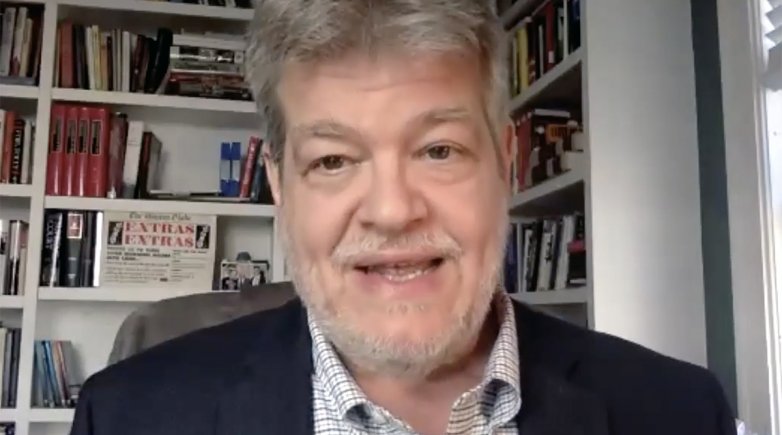Holding court
Assembly speaker Matt McGill '92 discusses the U.S. Supreme Court in the age of COVID-19.
For the past 15 months, nearly every aspect of American life has been affected in some way by the COVID-19 pandemic, and as attorney Matt McGill ’92 told assembly Friday, that extends all the way up to the highest court in the land.
A recurring assembly presenter, McGill is also a regular inside the marble walls of the U.S. Supreme Court. Lately, he explained, the proceedings look vastly different than any of the 23 cases he’s presented before the court. After postponements in March and April of 2020, the court announced it would begin holding oral arguments via telephone — a lo-fi solution in the age of Zoom — but an unsurprising adjustment in McGill’s summation.
“The Supreme Court did not say why it chose to conduct oral arguments by telephone, but I suspect it has something to do with its long and well-established opposition to any forms of cameras in the courtroom,” he said. “If the justices appeared by web camera, could they continue to resist TV cameras? I tend to think that would have been a hard sell, so they stuck with the good old-fashioned telephone.”
McGill described traditional Supreme Court arguments as “raucous affairs” rife with interjections and inquisition from the justices. Nowhere was that better illustrated than in the participation of Justice Clarence Thomas, who, in an effort to minimize his contribution to the “free-for-all,” had asked just two questions in his previous 14 years on the court. Since going to audio-only hearings, proceedings have been much more orderly.
“Once telephonic arguments started, Justice Thomas could not be stopped. He asked 63 questions in just two weeks. And guess what? He asks really good questions,” McGill said.
McGill also discussed the other seismic shift within the court in the past year: the passing of longtime Justice Ruth Bader Ginsburg and the appointment of her successor, Amy Coney Barrett. McGill discussed Ginsburg’s long and storied career, one that included 27 years on the Supreme Court.
“One of less than 10 women in her class at Harvard Law School, at orientation she was asked by the dean, ‘How do you justify taking a spot from a qualified man?’ I like to think that her remarkable career provided a winning response,” McGill said.
McGill highlighted two recent cases heard by the Supreme Court that the mostly-student audience might find especially interesting. The first, Mahanoy Area School District v. B.L., involves a student who was punished by her school for posting a profane message on social media after being cut from the varsity cheerleading team. McGill talked about the complexities of free speech and how institutions struggle to navigate censorship in the digital age. “Everyone seems to agree schools can punish some off-campus speech," McGill said. "The hard question here is how do you define that category?”
The second case, NCAA v. Alston, challenges the National Collegiate Athletic Association’s rule that college athletes must compete as amateurs. “The lower courts here ruled in favor of the student athletes and opened the door to the possibility that colleges could compete for student athletes, not only with scholarships, but cold, hard cash,” McGill said.
McGill was welcomed to assembly in an introduction by Binuki Thiruchelvam ’21. Students were encouraged to submit questions to McGill to be answered at a later time.



